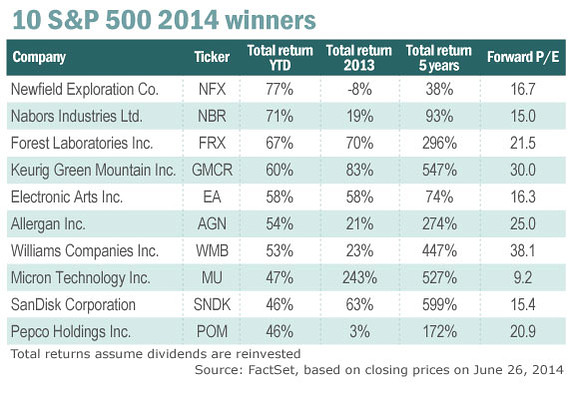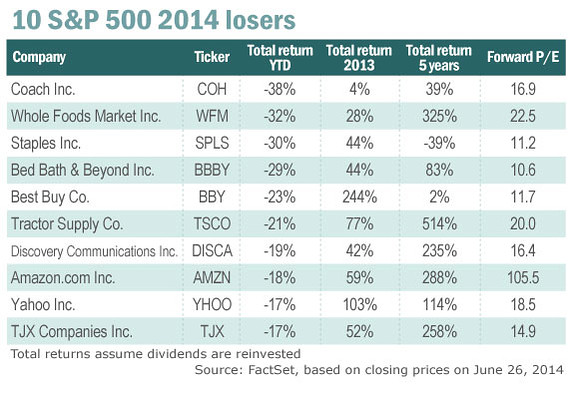10 “winners” and “losers” in the rating of S & P 500 for 2014
This year, the stock market investors imagine two scenarios: saving performance in last year’s levels, or possible correction.
From the beginning, the S & P 500 rose by 7%. This increase seems insignificant compared with 32% last year, but it is close to being to far exceed the historical average. (Although, it is not a fact.)
The strongest sector in the S & P500 this year were utilities, showing an increase of 17%. The energy sector rose by 13%, and oil and gas equipment and services gained 28%, storage and transportation of petroleum products – 25%, and their development and production – 22%.
But not everything is rosy.
Obama administration’s decision to lift the ban on the export of forty crude oil was another incentive for oil producers, but a bitter pill for refiners who suffered from “soft” domestic oil prices. Downstream oil and gas production and marketing sub-sector grew by only 2% this year.
Weakest yet remains the retail sector. When experts Marketwatch considering buying shares that heavily oversold, three companies were from this particular sector.
If the S & P 500 will continue to set records may be justified universal fears impending market correction. Prices for stock assets for several years supported cash flow from global central banks.
Fed plans to “minimize” the third phase of its asset purchase program by year’s end. By mid-2015, as experts predict, the Fed must make one important change in its monetary policy, namely, to increase the short-term federal funds rate from its current level of zero to 0.25%. There will be a lot of pressure on the prices of stocks, as the central bank begins to reduce its “bloated” balance.
Another point that should be taken into account – value of stock returns. S & P 500 is trading at a ratio of price to earnings forecast by analysts, which is 14.8. This is higher than 13.1 a year ago, and this figure did not rise so high since 2007.
Below are 10 shares S & P 500 with the highest and the lowest total return for the year:





